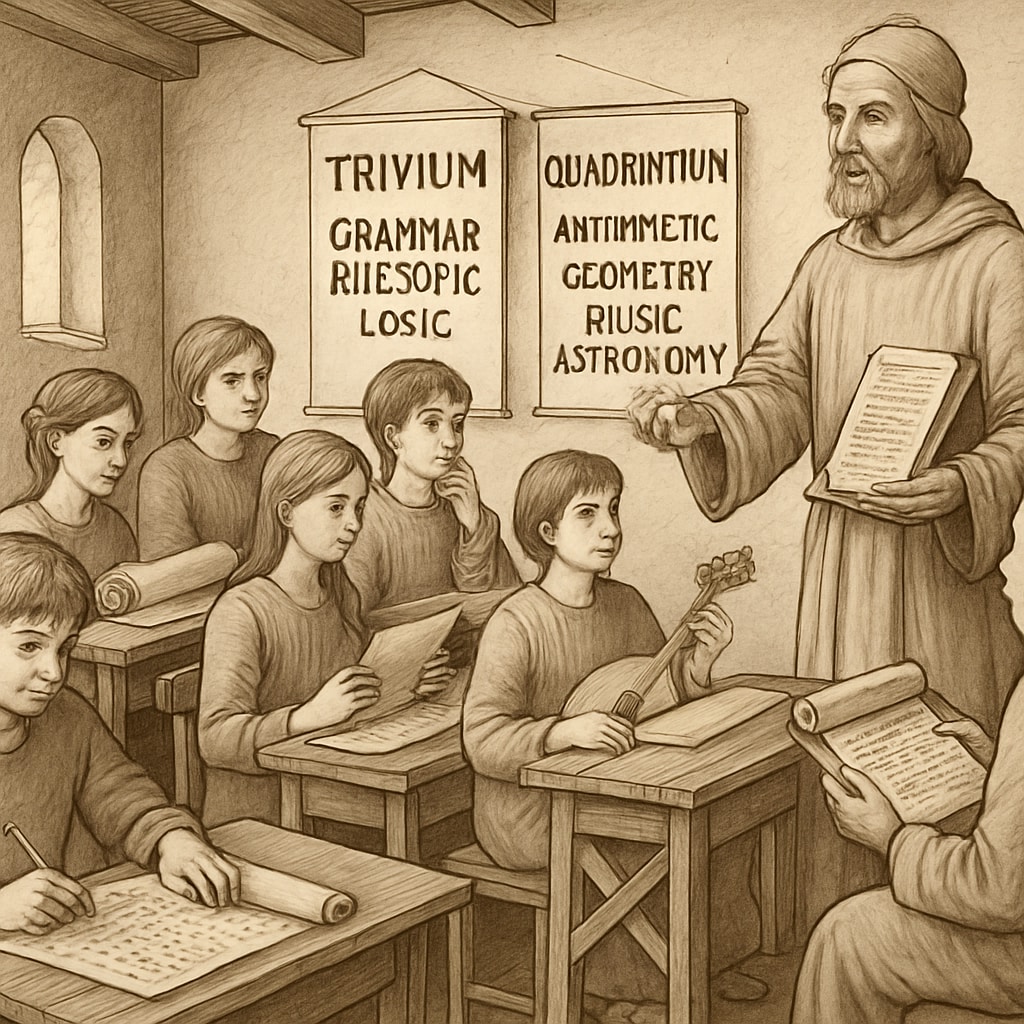Classical education, history shifts, and evolving educational philosophies have shaped how K12 schools operate today. Once regarded as the gold standard for cultivating critical thinkers, moral leaders, and intellectual pioneers, classical education has seen a steady decline in favor of modern curricula. This shift begs an important question: why have we moved away from a model that produced some of history’s most influential minds, such as the Founding Fathers of the United States?
Historical Roots of Classical Education
Classical education dates back to ancient Greece and Rome, where the trivium (grammar, logic, rhetoric) and quadrivium (arithmetic, geometry, music, astronomy) formed the foundation for learning. This approach emphasized the cultivation of virtue, critical thinking, and mastery of language. In the early United States, classical education was widely adopted in schools and universities, contributing to the intellectual development of figures like Thomas Jefferson and Benjamin Franklin.
However, as industrialization swept across the globe, the priorities of education shifted. The rise of factory-based economies in the 19th and 20th centuries demanded workers with specialized technical skills rather than philosophers or rhetoricians. Over time, classical education was deemed impractical for meeting the needs of a rapidly modernizing society.

Modern Societal Needs and the Shift in Focus
One significant reason for the decline of classical education is the evolving demands of society. Modern economies prioritize STEM (Science, Technology, Engineering, Mathematics) fields and technical competencies, pushing traditional liberal arts education into the background. In addition, the widespread implementation of standardized testing has encouraged a “teach-to-the-test” approach that leaves little room for the depth and breadth of classical education.
Furthermore, the social mission of education has changed dramatically. Today, schools are expected to address issues like inclusivity, mental health, and career readiness. While these are undoubtedly important, they often come at the expense of fostering intellectual rigor and philosophical inquiry.

Philosophical Shifts in Education
Another critical factor in the decline of classical education is the rise of progressive educational philosophies. Figures like John Dewey, the father of modern education, championed experiential learning and practical skills over rote memorization and theoretical study. While progressive education has its merits, it often neglects the timeless wisdom embedded in classical texts and disciplines.
Moreover, the emphasis on individualism and relativism in contemporary education contrasts sharply with the universal truths and shared values championed by classical education. As a result, the cohesive and structured nature of classical curricula has given way to fragmented and customizable learning paths.
Lessons from Classical Education for Modern Reform
Despite its decline, classical education offers valuable lessons that modern reformers should not ignore. For example:
- Critical Thinking: The emphasis on logic and rhetoric in classical education can equip students to analyze and debate complex issues effectively.
- Virtue and Character Development: Classical texts often explore moral dilemmas and ethical decision-making, fostering character growth.
- Holistic Learning: Integrating arts, sciences, and humanities ensures a well-rounded education that prepares students for diverse challenges.
While it may not be feasible to return entirely to a classical model, incorporating its principles into modern curricula could address the gaps in critical thinking and character education evident in many K12 systems today.
Conclusion
The decline of classical education in K12 schools is rooted in historical shifts, societal changes, and philosophical transformations. While modern education has undoubtedly advanced in many areas, it risks losing the profound wisdom and intellectual rigor that classical education once provided. Reflecting on the past can help us design a future that balances technical proficiency with ethical and critical thinking skills—ensuring that we cultivate not only skilled workers but also thoughtful citizens.
As we move forward, educational reformers would benefit from revisiting the principles of classical education. By blending timeless wisdom with contemporary needs, we can create an educational model that truly prepares students for success in every facet of life.
Readability guidance: Short paragraphs and clear subheadings enhance readability. Lists summarize key points, and transitions like “however” and “for example” ensure logical flow. Minimal passive voice keeps the tone engaging.


